“Surveying the midnight skies, I remember Him who, while He calls the stars by their names, also bindeth up the broken in heart.”
-C. H. Spurgeon
The Battle of Vukovar was an 87 day siege of the Croatian city of Vukovar which took place during the latter part of 1991. After being shelled at a rate of up to 12,000 rockets and shells per day, Vukovar fell in November, 1991.
During the battle, over 450 people took refuge in the basement of the Vukovar hospital. Men, women, children, and wounded citizens were among those who sought safety there. A large red cross was placed on the roof of the building in hope that the facility would not be targeted. However, the hospital was bombed on a daily basis. As a result, the top four floors of the hospital were destroyed. Only the ground floor and basement remained somewhat intact.
This cross hangs in remembrance of the red cross painted on the hospital roof which was bombed during the siege.
The massacre at the Vukovar hospital occurred on the 20th of November 1991. During the final days of this battle, an evacuation of the hospital was negotiated between the military and the International Committee of the Red Cross. While some hospital residents were safely removed and taken to further care, other civilians and prisoners of war were secretly relocated to "Ovčara Farm". Here people from the hospital were beaten for several hours before they were taken to a prepared site to be killed. Their mass grave was discovered in 1992.
Four years later over 200 sets of remains were exhumed from the grave - many more are still missing. To this day, bodies from the grave are being identified through a lengthy and emotionally taxing process.
The Vukovar Memorial at the site of the mass grave.
During a recent trip, our cohort was able to tour the hospital in Vukovar. The hospital has been rebuilt now, but the floor where the patients took shelter during the siege remains largely unchanged in its structure. We walked through various rooms with bunks, hospital beds, stretchers, medicine closets, a maternity ward and operating room. One room has been transformed into a memorial for those killed in Ovčara. For 24 hours a day, 365 days a year, a candle burns and the names of the victims killed at Ovčara are listed off via a recording.
As we walked through the hospital our tour guide told us about the challenges of life in the hospital during the siege - stories of overcrowding, fear, and uncertainty. She pointed out the tiles on one wall of the long narrow hallway which represented the victims of the massacre. There is also a space representing people who are still missing or have yet to be identified. Our tour guide shared the story of a time that a bomb had fallen through all four stories of the hospital above and landed, miraculously undetonated, in the basement among the patients. She shared about each of the rooms and the purpose each of them served during the siege. The stories were increasingly harder to hear as the visuals were sinking in and we were experiencing the smallness of the basement space.
After reflecting on all that I saw and heard at the Vukovar hospital, I am tempted to become lost in frustration and confusion about why these kinds of atrocities are committed. While I grapple through my own questions and feelings, I must remember that this place of dying is simultaneously a place of healing. Today, as well as throughout the siege, the Vukovar hospital is functioning. People are still experiencing healing and recovery there. The people of Vukovar fought to keep others alive and well, even underground, even when the bombs were falling. Medical personnel worked around the clock attending to the hurt and wounded, keeping them alive. Refugees lived in unimaginably tight quarters with few supplies yet some were able to start rebuilding their identities once the siege ended.
In moving forward in my processing and studying, I must reflect on this resilience. I seek to fill my minds space not so much with the atrocity and violence, but may I rather celebrate those who fought for life and healing. My hope for this time of reflection after our visit to Vukovar is that I myself along with the cohort would not be consumed solely by the pain and the confusion, though it must be acknowledged and taken seriously. Rather let us also take time to reflect on those who fought to live. In the midst of the pain, let me also remember life.
“He heals the brokenhearted and binds up their wounds. He determines the number of the stars and calls them each by name.”
Psalm 147: 3-4
Sarah Cox is a rising senior at Gordon College where she studies political science and Biblical studies. During her time in Croatia she has interned with both Transparency International and the European Center for the Study for War and Peace. After graduation Sarah hopes to attend law school.




